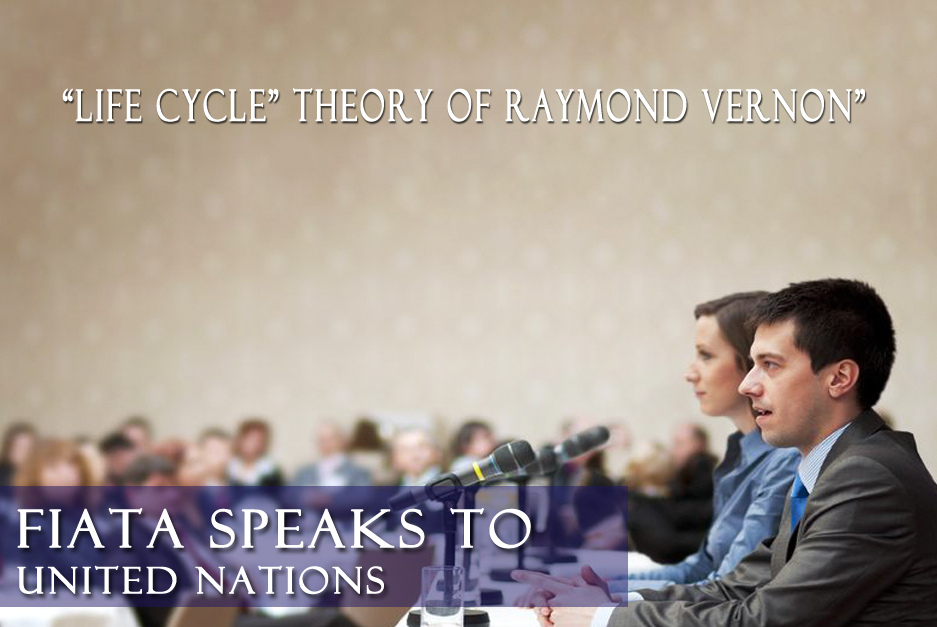FIATA Gives Advice To United Nations

According to the latest press release, made by the International Federation of Freight Forwarders Associations, known as “FIATA”, it addresses the importance of the logistics sector and how the efficient supply chain is as a growing part of the international economy. The Press Release indicated that the United Nation’s post 2015 Sustainable Development goals must include some parts related logistics connectivity. When it comes to the concept which FIATA has; the one concept it has been mostly based around is the ‘Life Cycle’ or Product Cycle theory. This was proposed by economist Raymond Vernon, who specialized in multinational corporations and trade globalization effects on the individual society.
Vernon’s theory from 1966, interprets something related to involvement of any freight forwarder and logistics specialist. When a very successful new product is developed, it is known that the product rapidly moves from sourcing to the final destination. This is where raw material, combined with knowledge, will be rapidly used and further developed. We can tell, based on his theory, that he actually spoke about Asia in general and more specifically about China and their emerging economies.
At this point, FIATA interprets given theory by saying that the Logistics Index exceeds its point of equilibrium. By saying that, it puts supply chain and logistics processes deeply implemented into values within variety of different sectors and industries. FIATA shows equal strategic importance of logistics in achieving sustainability, as well as, in the terms of economic development itself. In addition to it, changes will have to be made, otherwise as the logistics will continue energy consumption and GHG emissions the way that the production does.
As a result, FIATA urged the 30-Member States to Open Working Group on Sustainable Development, which is assembled by the United Nations with the intention to recognize the importance of international trade and logistics in boosting economic opportunities. Based on mentioned Sustainable Development Goals (SDG’s), FIATA could not fail to recognize the powerful and important contribution which logistics and supply chain provide to development.
FIATA argued that the design of Sustainable Development Goals (SDG’s) needs to be more action-oriented and aware of the transport industry as a part of global trade economy. Furthermore, it confirms that more involvement by stakeholders is needed when it comes to sustainable development.
FIATA’s value increased in audience base beyond participation of usual attendees and belies that contributions will result in more useful suggestions and proposals which will add important value in creating impactful Sustainable Development Goals (SDG’s).
Keeping track of the progress towards achieving Sustainable Development Goals (SDG’s) needs to be strongly established in order to measure the effectiveness and success of the approach previously taken. FIATA has an expectation which says that Sustainable Development Goals (SDGs) needs to include indicators which should be based on a conceptual indicator within given framework. Her framework and the specific indicators are supposed to be based on the experiences of countries with proven success in monitoring sustainable development. Support will be definitely needed for countries that participate in measuring progress.


